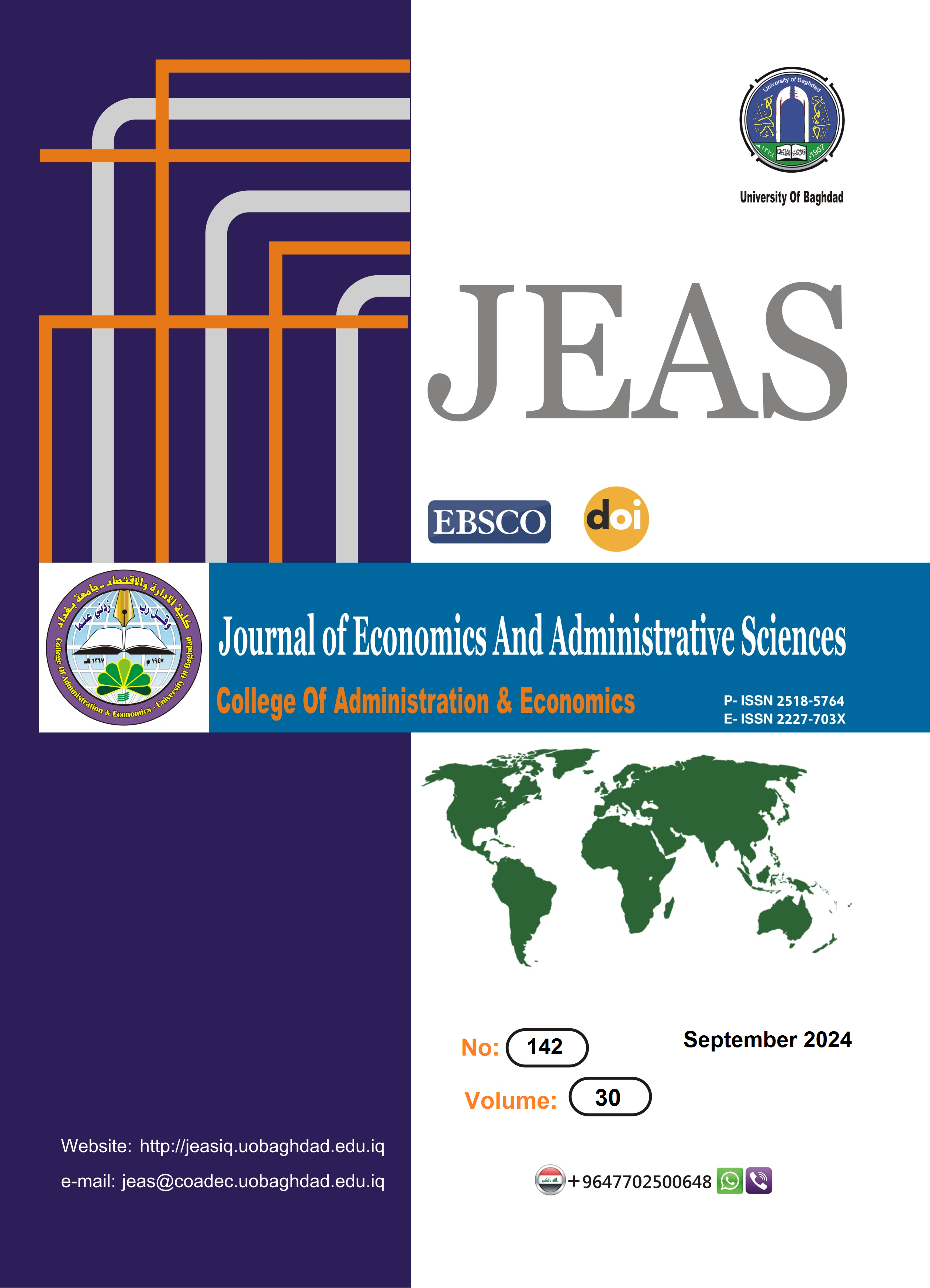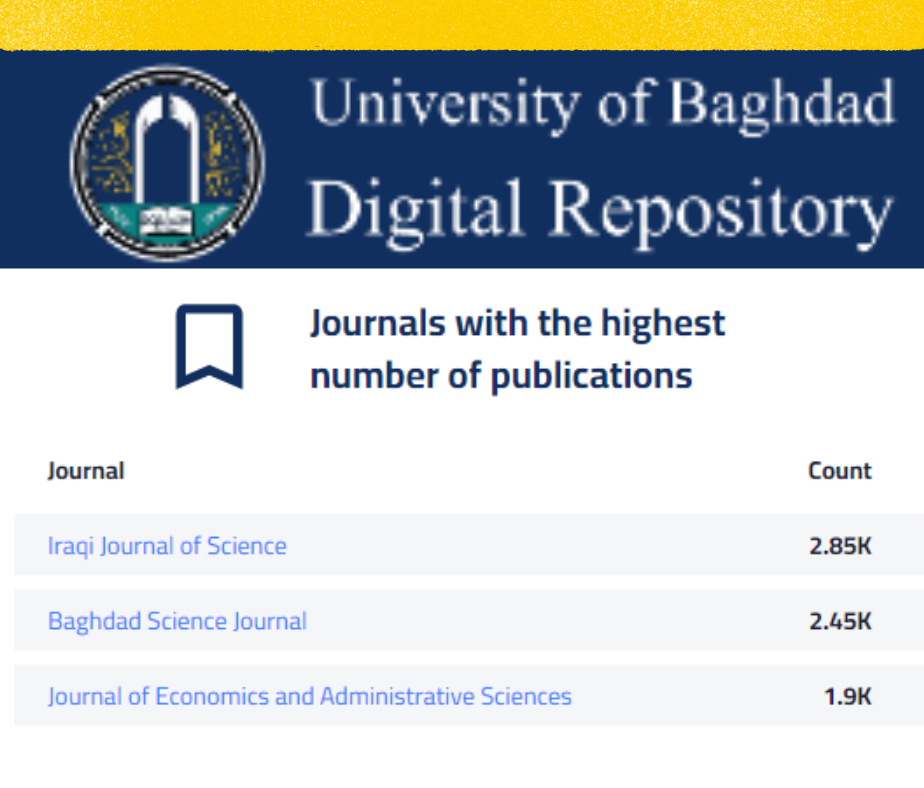The Impact of Conscious Leadership in Supporting the Requirements of Strategic Renewal: An Analytical Study in the Iraqi Ministry of Planning
DOI:
https://doi.org/10.33095/q406sz94Keywords:
Conscious leadership, Strategic renewal, Ministry of Planning, Academic leaders.Abstract
The current research aims to explore the relationship and impact of conscious leadership, (self-awareness, awareness of others, and situational awareness), on strategic renewal, (context, content, process). The research problem relies on the following question: Do the responsible leaders in the Ministry of Planning possess a level of awareness to meet the requirements of strategic renewal for the present and the future? The research community consists of top and middle leaders in the Ministry of Planning, totaling 100 out of 104. Data analysis was conducted using statistical software, including SPSS v.26, Amoss v.29, and Picelscp Professor. Among the key findings, it is stressed that there is a need to enhance the importance of self-awareness, awareness of others, and situational awareness. The necessity of working on developing the process of identifying errors, addressing them, and the ability to take action can lead to base on the nature of employees' work and responsibility in the field of strategic planning for important projects and pathways supporting the national economy in the future.
Research paper.
Downloads
References
References:
Ahmed, S.F. 2022. “The effect of the relationship between Conscious Leadership and Proactive Sustainability Strategy in Enhancing the Organization Reputation Strategically: An analytical Study in the Private Banking Sector” Journal of Contemporary Issues in Business and Government, 28(1), pp. 205-224.
Alalak, A. A., Raheemah, S. H., & Makki, Z. F. 2023. “Inclusive leadership in the General Secretariat for the Council of Ministers-An analytical research,” Journal of Economics and Administrative Sciences, 29( 137), pp. 76-94.
Al-Hamdani, Y. O. A., and Kadhim, F. J. 2021. “The effect of innovation and modernization as an approach to strategic change in the efficiency of organizational performance Field research in the Oil Projects Company (SCOP),” journal of Economics and Administrative Sciences, 27(126), pp. 304-326.
Al-Tahat, A.A., Al-Sharman, P. and Mahmoud, M. 2022. “Emotional Intelligence for superintendents in Irbid Governorate and its Relationship to Job Satisfaction, Jordanian Educational” Journal, 7( 1), pp. 25-58.
Awad, D. 2010. “Supply chain integration: definition and challenges, Management and Technology” (IJIMT), 1(1).
Flier, B., 2003. “Strategic renewal of European financial incumbents: Coevolution of environmental selection institutional effects, and managerial intentionality, ERIM PhD Series in Research in Management,” ISBN 90-5892-055-0, Erasmus University Rotterdam.
Ibrahim, M. F., and Al-kubaisy, S. A. A. 2022. “The Impact of Management by Walking Around on the Strategic Renewal of Business Organizations (Field Research in a Sample of Excellent grade hotels-in Baghdad)”, Journal of Economics and Administrative Sciences, 28(134), pp. 1-14.
Ismail, H. K., and Ahmedi, G. M. K. 2021. “The Role of Conscious Leadership in Building Organizational Identity: An Analytical Study of the Opinions of a Sample of Faculty Members in the Colleges of Duhok University, Academic” Journal of Nawruz University, 10( 1), pp. 340-356.
Jones, V. L. 2012. In search of “conscious leadership: a qualitative study of postsecondary educational leadership practices, Doctoral dissertation, San Diego” State University.
Kwee, Z., Van Den Bosch, F. A., and Volberda, H. W. 2011. “The influence of top management team's corporate governance orientation on strategic renewal trajectories: a longitudinal analysis of Royal Dutch Shell plc, 1907–2004,” Journal of Management Studies, 48(1), pp.984-1014.
Mielcarek, P. 2018. “The strategic renewal process–the challenge of creating and capturing value, Nauki o Zarzadzaniu”, 23( 4), pp. 28-34.
Ortiz, G., Zouai, M., Kazar, O., Garcia-de-Prado, A.and Boubeta-Puig, J 2022. “Atmosphere: Context and situational-aware collaborative IoT architecture for edge-fog-cloud computing, Computer” Standards Interfaces, 79, pp. 103550.
Rasooli, T., Moradi-Joo, E., Hamedpour, H., Davarpanah, M., Jafarinahlashkanani, F., Hamedpour, R., and Mohammadi-Khah, J. 2019. “The relationship between emotional intelligence and attitudes of organizational culture among managers of hospitals of Ahvaz Jundishapur University of Medical Sciences”: 2019, Entomol Appl Sci Lett, 6(3), pp. 62-67.
Serhan, A., and Gazzaz, H. 2019. “The impact of emotional intelligence on employee performance in Saudi Arabia banking sector”, Journal of Economics and Administrative Sciences, 25( 116), pp. 127-146.
Schmitt, A., Barker III, V. L., Raisch, S., & Whetten, D. 2016. “Strategic renewal in times of environmental scarcity". Long Range Planning, 49(3), pp.361-376
Published
Issue
Section
License
Copyright (c) 2024 Journal of Economics and Administrative Sciences

This work is licensed under a Creative Commons Attribution-NonCommercial-NoDerivatives 4.0 International License.
Articles submitted to the journal should not have been published before in their current or substantially similar form or be under consideration for publication with another journal. Please see JEAS originality guidelines for details. Use this in conjunction with the points below about references, before submission i.e. always attribute clearly using either indented text or quote marks as well as making use of the preferred Harvard style of formatting. Authors submitting articles for publication warrant that the work is not an infringement of any existing copyright and will indemnify the publisher against any breach of such warranty. For ease of dissemination and to ensure proper policing of use, papers and contributions become the legal copyright of the publisher unless otherwise agreed.
The editor may make use of Turnitin software for checking the originality of submissions received.













 How to use the OJS system
How to use the OJS system 










